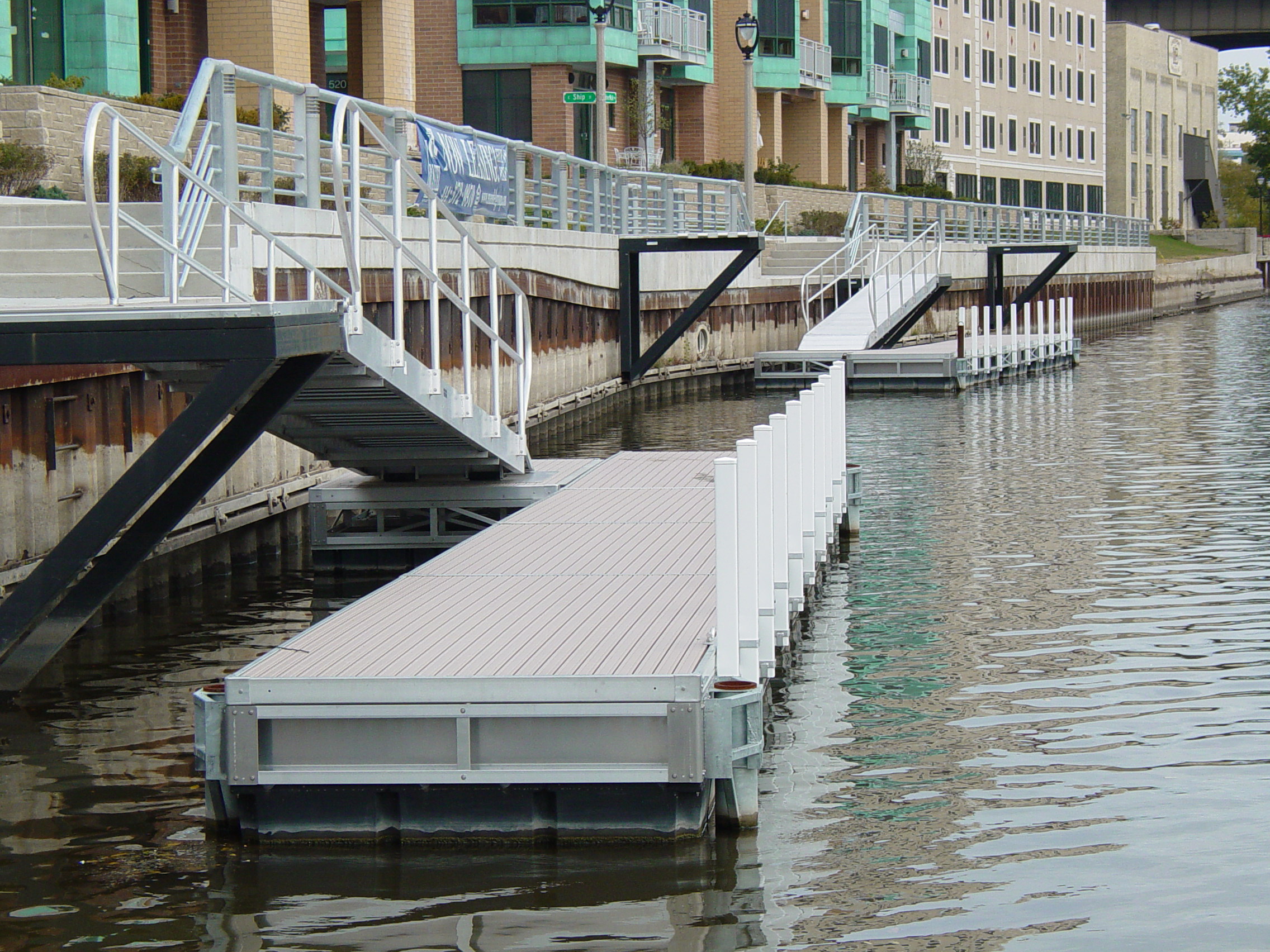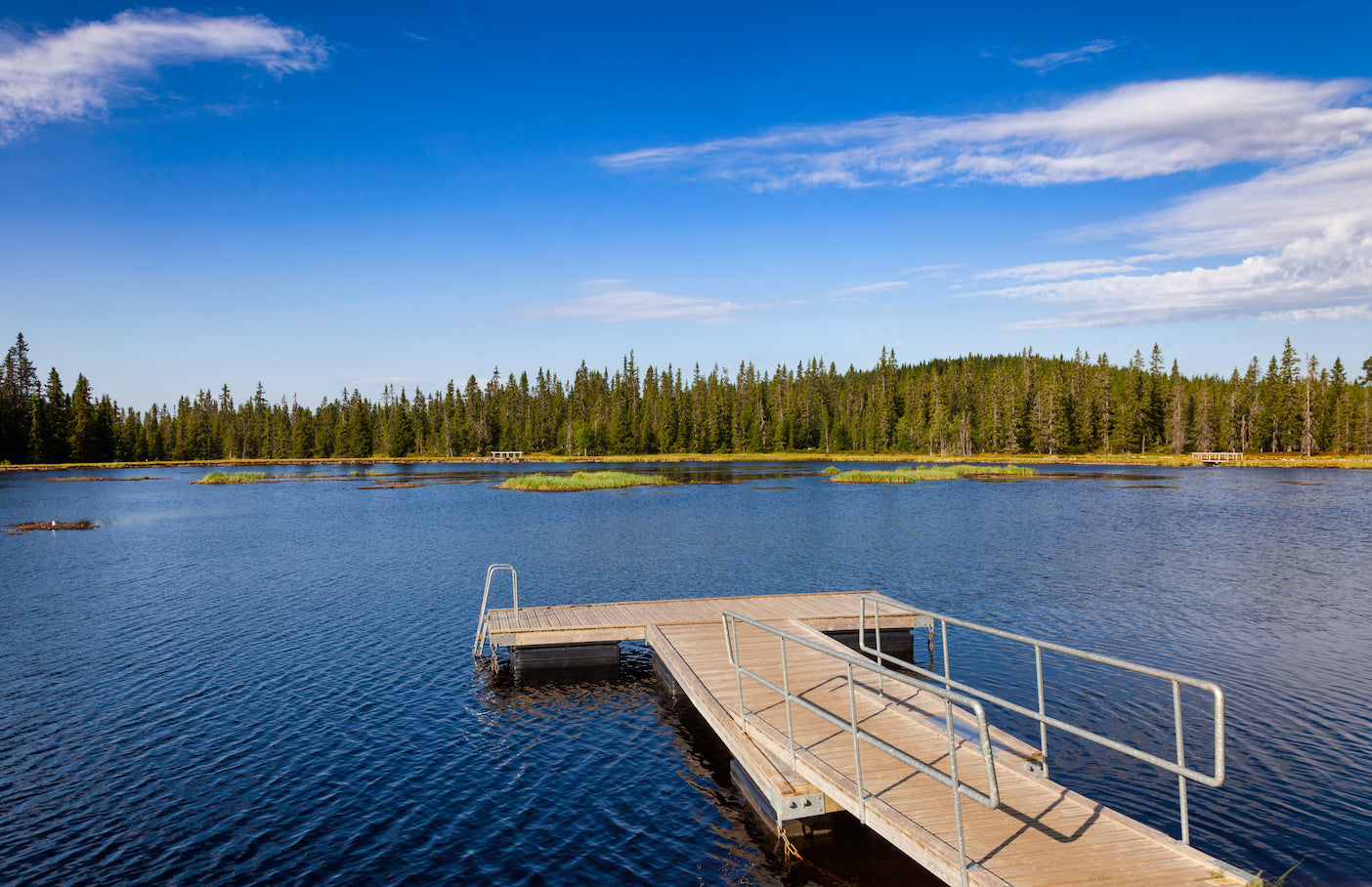Your Guide to Locating the most effective Dock Company for Top Quality and Dependability
Your Guide to Locating the most effective Dock Company for Top Quality and Dependability
Blog Article
Floating Docks: The Perfect Option for Versatile Water Accessibility
Floating docks existing an engaging solution for a variety of water gain access to requires, offering convenience that goes beyond typical mooring choices. Their ability to adjust to rising and falling water levels while ensuring stability and security makes them specifically advantageous for both industrial and entertainment applications. The modular nature of floating docks promotes personalization, catering to particular needs. The subtleties of installation and maintenance, alongside the array of applications, require a closer exam to fully appreciate their possible benefits and effects for river gain access to strategies.
Benefits of Floating Docks
Floating docks deal numerous advantages that enhance water access for various applications. Their capacity to fluctuate with transforming water levels makes them especially beneficial in settings with varying trends or seasonal variations. This versatility makes sure that vessels can conveniently anchor without problem for the water's deepness, offering a trustworthy system for leisure, business, and industrial uses.
Additionally, floating docks are typically built from resilient products that stand up to deterioration, making them suitable for long-term usage in aquatic atmospheres. Their installment is normally less intrusive than conventional set docks, reducing the ecological impact and facilitating quicker release (floating dock services). This versatility enables for much easier relocation or reconfiguration according to customer needs or ecological adjustments
Security is another crucial advantage; floating docks can provide secure accessibility for people boarding or getting off from boats and decrease the risk of crashes linked with unsteady surfaces. Additionally, they can be created to accommodate a range of devices, such as cleats and fenders, boosting performance. In general, floating docks represent an efficient option for boosting water access across varied markets while promoting safety and security and environmental sustainability.

Types of Floating Docks
Different kinds of floating docks cater to various requirements and atmospheres, each created with certain functions to optimize functionality. One of the most common kinds include modular docks, which contain interlocking sections that enable very easy customization and expansion. These docks are perfect for entertainment use, as they can be tailored to fit numerous watercraft sizes and water conditions.
Another prominent option is the stationary floating dock, which remains anchored in position however floats with altering water degrees. floating dock services. This kind is specifically suited for locations with marginal tidal fluctuations, supplying steady accessibility for fishing or swimming. In addition, there are drive-on docks, which feature a sloped layout that allows watercrafts to conveniently drive on and off, making them ideal for personal watercraft and smaller vessels
For commercial applications, sturdy floating docks are available, built from reinforced products to hold up against significant tons and extreme marine settings. Environmentally friendly floating docks use sustainable materials and styles to lessen environmental impact, often incorporating attributes like vegetation to sustain local wild animals. Recognizing the different kinds of floating docks makes certain that users can choose one of the most appropriate option for their particular needs.
Installation Refine Introduction
A successful installment of floating docks needs careful planning and interest to information to ensure optimum performance and safety and security. The initial step includes evaluating the site conditions, including water deepness, existing, and potential challenges. This evaluation notifies the choice of the proper dock materials and layout customized to the details atmosphere.
Following, obtaining essential authorizations is vital, as lots of jurisdictions have guidelines relating to building on water bodies. The installation can proceed as soon as authorizations are protected. Begin by preparing the foundation, which might involve anchoring systems or pilings customized to the dock kind and neighborhood conditions.
Following the foundation configuration, set up the dock sections according to supplier specs. Make sure that all components are securely secured and straightened to endure environmental stress and anxieties. Setting the dock in the assigned location, ensuring it is degree and secure.

Maintenance Tips and Ideal Practices
After the setup process is full, continuous maintenance plays an important function in ensuring the durability and performance of floating docks. Regular examinations click for more ought to be performed to identify any kind of signs of damage, wear, or deterioration - floating dock services. Inspect for any type of loose installations, cracks, or separation in the dock areas, as these can jeopardize structural integrity
Cleaning up the dock is necessary to eliminate particles, algae, and various other accumulation that can affect its look and security. Use a mild pressure clean periodically to preserve tidiness without causing damage to the surface. In addition, applying a safety sealant every few years can aid boost durability and stand up to ecological wear.
Take notice of the mooring lines and anchors, ensuring they are free and safe from deterioration. Replace any degraded parts quickly to prevent threats. Seasonal changes may likewise be necessary; throughout extreme climate conditions, enhancing the dock or repositioning can prevent damages.
Applications for Floating Docks
Floating docks serve a plethora of applications, catering to both recreational and business demands. In entertainment settings, they offer smooth access to waterways for tasks such as boating, fishing, and swimming. Their adjustable nature enables setup in differing water degrees, making sure secure and stable gain access to no matter of tidal variations.
Commercially, floating docks are important for marinas and waterfront services. They facilitate the docking of vessels, allowing efficient unloading and packing of goods. Their modular layout enables very easy growth or reconfiguration to accommodate changing organization demands, making them ideal for wikipedia reference watercraft rentals, trip procedures, or angling charters.
Additionally, floating docks are used in ecological applications such as water study and environment restoration. They can work as platforms for clinical research studies, checking water quality, or conducting wild animals studies without troubling sensitive environments.
In industrial contexts, floating docks are used in building jobs, supplying accessibility to hard-to-reach areas for tools and employees. Their versatility, sturdiness, and very little influence on the setting make them an optimal option for a variety of applications, improving both functionality and access in various water-based settings.
Final Thought
In final thought, floating docks stand for an optimal service for diverse water access needs, owing to their adaptability, toughness, and modular style. Floating docks serve as a beneficial property for entertainment, commercial, and environmental projects, making certain dependable access to waterways and advertising sustainable practices in aquatic atmospheres.
Floating docks visit their website present a compelling solution for a variety of water access requires, providing flexibility that goes beyond traditional mooring options.Floating docks offer various advantages that improve water access for numerous applications. Generally, floating docks stand for a reliable remedy for boosting water gain access to across varied sectors while promoting security and environmental sustainability.
One more preferred alternative is the fixed floating dock, which remains secured in area but floats with transforming water degrees.In final thought, floating docks stand for an optimum service for diverse water accessibility requires, owing to their adaptability, sturdiness, and modular style.
Report this page